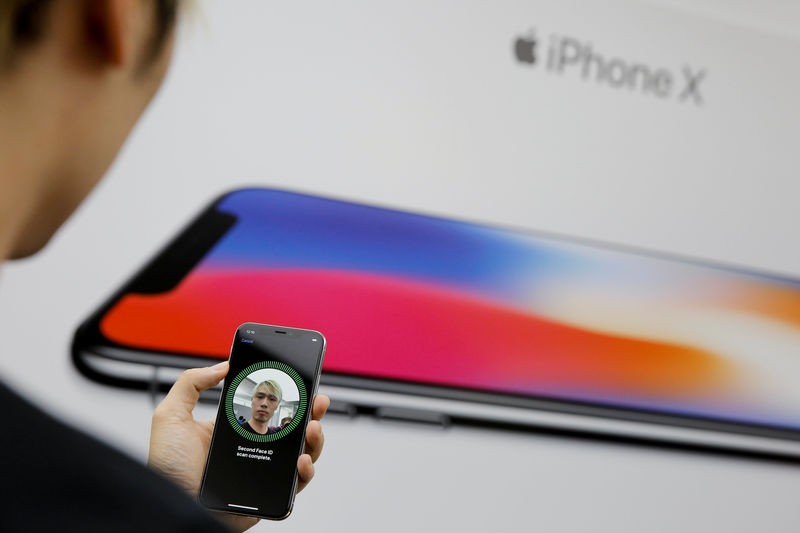Apple stock: Here are the top 9 debates and questions according to Needham
Investing.com -- In a Thursday note to clients, Needham analysts delved into the most pressing debates and questions investors are asking about Apple Inc (NASDAQ:AAPL ), just before the expected launch of the tech giant’s new iPhone 16.
The investment bank addresses nine key areas of concern, each related to Apple stock’s performance and future valuation.
1) ‘iPhone Upgrade Cycle Timing:’ A core concern is when the next significant iPhone replacement cycle will begin.
Needham projects iPhone revenues will represent more than 50% of Apple’s $390 billion total in FY24. This makes new iPhone sales crucial to the company’s earnings performance.
“Which year consumers replace their iPhones determines whether AAPL’s share price is too cheap or too expensive today,” Needham analysts highlight.
2) ‘GenAI Timing:’ Needham says investors are questioning Apple's slow entry into the generative AI (GenAI) space, especially with the iPhone 16’s limited AI capabilities. Android competitors, backed by Google’s superior AI technology, are posing a growing threat.
“At a time when GOOGL, AMZN, META (NASDAQ:META ) and MSFT are spending $30-70B on creating and enabling GenAI capabilities (including building LLMs), is AAPL spending too little and falling behind irrevocably?” is one of the questions being asked by investors, Needham highlights.
3) ‘China:’ With iPhone sales in China declining as a percentage of total revenue, geopolitical tensions add pressure. Analysts point out that many investors wonder if current valuations sufficiently account for the risks of higher import costs from China or potential retaliatory actions against US companies.
4) ‘iPhone Dependence:’ Needham notes that over 50% of Apple’s total revenues stem from iPhone sales, making it a linchpin for the company. It also highlights that Apple reports having 2.2 billion active devices used by approximately 1.25 billion customers, suggesting that, on average, each customer within Apple’s ecosystem owns 1.8 devices.
“We believe that the iPhone is the "anchor" device, and all other devices are add-ons, similar to services revs. By implication, when a consumer swaps out of their iPhone, they also swap out their watch and airpods, but not vice versa,” analysts wrote.
Meanwhile, the key question among investors is: “Isn’t AAPL essentially a single product company?” The heavy reliance on iPhone makes diversification a persistent concern among investors.
5) ‘Vision Pro:’ Apple’s Vision Pro headset, priced at $3,499, is met with skepticism. Analysts report mixed views from investors, with many seeing it as a distraction rather than a meaningful revenue driver. As such, some are raising questions about how does the Vision Pro fit into Apple’s strategy.
6) ‘Services:’ With hardware sales plateauing, Apple’s ability to grow services revenue is critical. Investors debate whether Apple can maintain its high margins in this segment.
7) ‘Health:’ Apple’s health initiatives, such as the Apple Watch’s sleep apnea detection, are exciting but also bring regulatory risks. According to Needham, investors are concerned about legal challenges.
“Many investors fear that contingency lawyers will file lawsuits if Apple apps deliver false readings,” Needham notes.
8) 'Global Litigation & Regulatory Risks:’ Regulatory scrutiny, especially around Apple’s closed ecosystem and App Store policies, is also a growing concern. Needham’s report emphasizes that regulators around the world increasingly view Apple’s size and dominance as problematic, with investors asking how this will affect Apple’s bottom line.
9) 'Deteriorating Competitive Position:’ Lastly, analysts discussed Apple’s product development cycle.
They point out that investors believe the company’s annual product introduction cycle “is too slow given the accelerating pace of technology.”
Interestingly, Apple views this strategy of "making their own weather"—focusing less on competitors—as a strength.
Source: Investing.com
